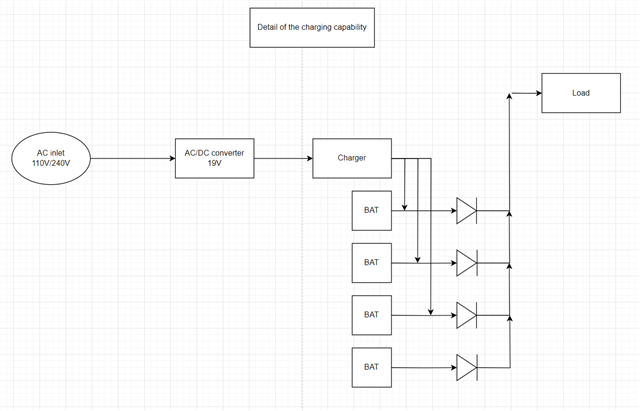Other Parts Discussed in Thread: TPS2121, BQ25756, BQ25756E
Hi all,
I need to build a system than can be powered by 4 smart batteries or from a DC power supply if the batteries are not present.
When both the DC supply and the batteries are present, the DC supply should charge the battery as well as power the system.
My initial idea would be to go for 4x BQ25750, one for each battery, the output of the 4 charging circuit would be tied together with ideal diodes (probably TPS2121, or LM73100) to power up the system load.
Would this kind of circuit work?
According to the question linked to this one, it looks feasible to do this also with a BQ25756 however in this case I'm not quite sure the system can be powered when the batteries are not present.
Would you recommend some other circuit to achieve my goals?
Thanks for your help.
Cheers,
Loïc



